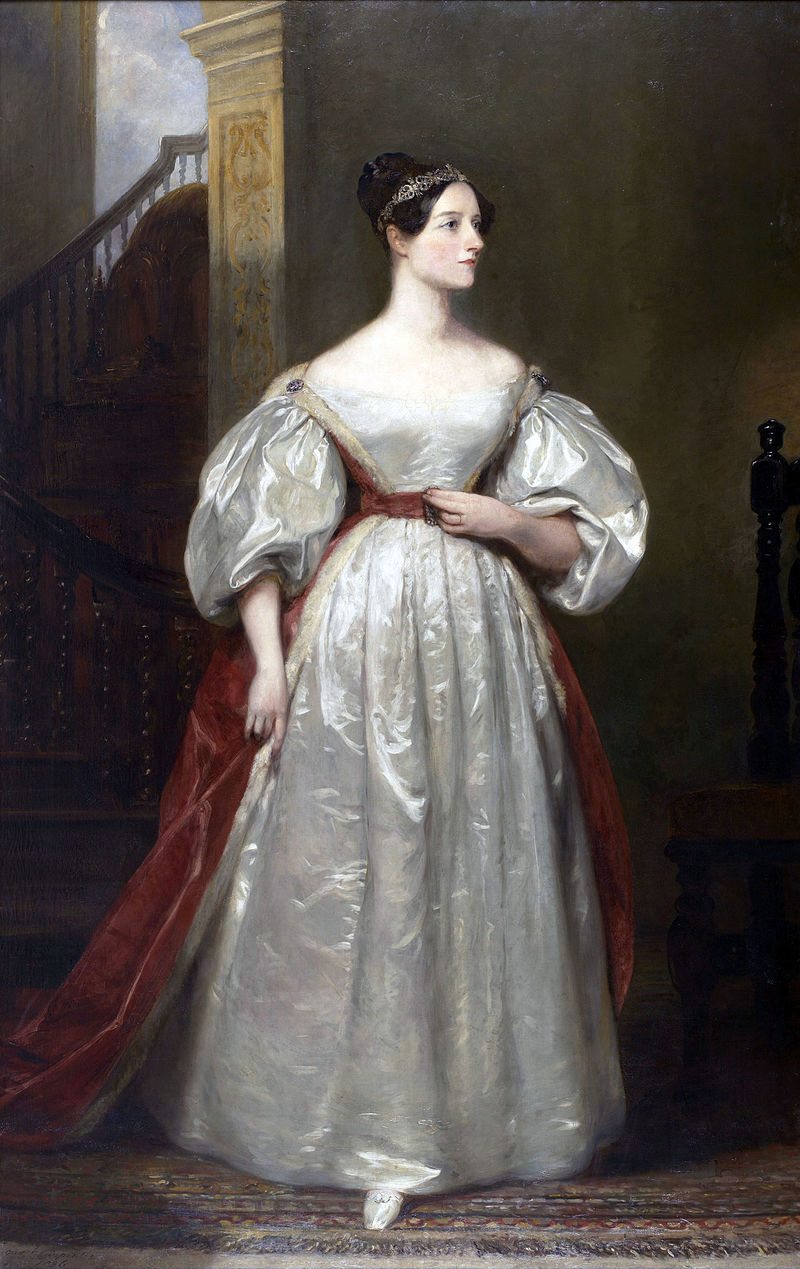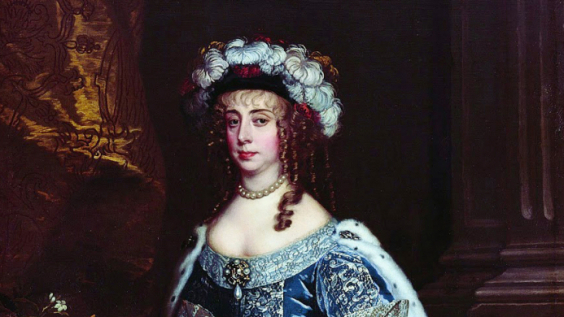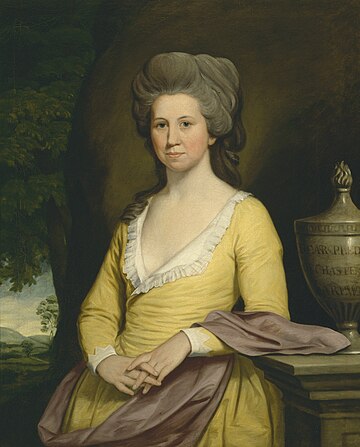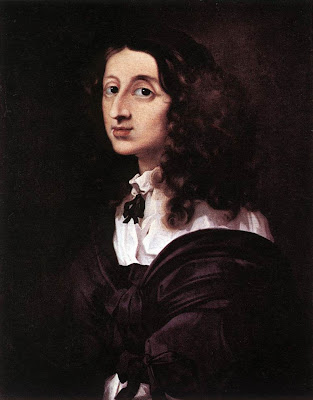|
|
Post by The Duchess on Mar 8, 2021 20:26:03 GMT -5
Happy International Women's Day (8 March) and Women's History Month!
Established by the National Women's History Association in 1987, Women's History Month was created to specifically acknowledge women's contributions to history. In the spirit of the month, this thread is the place to name, acknowledge, and celebrate the many notable women in world history.
CHRISTINA OF SWEDEN (1626-1689): One of the most educated -- and eccentric -- women of the 17th century
╔═════ °• ♔ •° ═════╗
"To lose occasions of distinguishing oneself is a great loss."
"We should read for instruction, correction, consolation."
"We should never believe anything we have not dared to doubt.""Happiness does not lie in the opinions of others.""Great friendship is as rare as great love.""To conquer oneself is to triumph over one's most powerful enemy.""We should always try to surpass ourselves. This occupation will last our lives out." (from Maxims of a Queen)
╚═════ °• ♔ •° ═════╝Christina was named King of Sweden -- yes, King! -- upon her father's death in 1632, aged just six. She reached her majority at the age of 18 in 1644, and abdicated just ten years later. As per her late father's wishes, she received the education of a prince, which inculcated a deep love of learning within her. As such, she is remembered as one of the most learned women of the seventeenth century. A few years after reaching majority, Christina began to amass an enormous library in Stockholm, with the intention of making the humble city the "Athens of the North." She read widely, devouring books on topics as wide-ranging as alchemy, religion, theology, mathematics, and philosophy. Before she was 30 years old, she spoke eight languages, among them Hebrew and Arabic. Christina dressed, talked, walked, rode, and fought like a man, but never once denied the fact that she was a woman. She pursued an affair with one of her ladies-in-waiting, Ebba Sparre, and remarked to a curious courtier that Sparre's "insides are as beautiful as her outside." In 1654, Christina proclaimed that she had no intention of marrying, created her cousin, Karl IX, as her heir, abdicated, and converted to Catholicism; her precocious education had created a deep-seated disdain for Lutheranism. Now free from royal obligations, the restless eccentric struck off across Europe, staying at the court of Louis XIV for some time, before finally settling in Rome, where she would, more or less, remain for the rest of her life. While in Rome, she engaged in various political intrigues, patronized artists, musicians, and composers, and potentially even carried on an affair with a cardinal. She continued to enrapture and scandalize for the rest of her life. Her patron, Pope Alexander VII, remarked that Christina was "a queen without a realm, a Christian without faith, and a woman without shame." Christina died in 1689, at the age of 62, after living a life that seemed, well, larger than life. She is one of only three women buried in the Vatican grotto, among the popes. Alas that this brief post does not do Christina justice! I'm burnt out from finishing up my thesis. Nevertheless, I wanted to put something out about Christina for International Women's Day.
|
|
|
|
Post by Aurelia on Mar 8, 2021 21:03:39 GMT -5
Happy International Women's Day (8 March) and Women's History Month!
Established by the National Women's History Association in 1987, Women's History Month was created to specifically acknowledge women's contributions to history. In the spirit of the month, this thread is the place to name, acknowledge, and celebrate the many notable women in world history.
CHRISTINA OF SWEDEN (1626-1689): One of the most educated -- and eccentric -- women of the 17th century
... Kristina is one of my favorites - her life and her choices reflect such complexity to her character. She is one of the more under-rated greats in history. |
|
|
|
Post by Aurelia on Mar 9, 2021 10:42:49 GMT -5

Ada Lovelace ( Augusta Ada King, Countess of Lovelace) - 1815-1852 "The Mother of Modern Computer Programming", "The Enchantress of Numbers" - self described "Analyst and Metaphysician" and "Poetical Scientist". Ada was the only legitimate child born to Lord Byron through his marriage to Anne Isabella Milbanke - theirs was a strange sort of marriage that paired poetry and romantic excesses with strict regliousity and mathematical adeptness. Ada would be pushed to study mathematics by her mother as a measure to counter any poetic qualities or mental instabilities she may have inherited from her father. Lord Byron died while Ada was still a young girl - she never would know her father (or understand how his reputation may have overshadowed her own abilities) until his portrait was shown to her when she was 20 years old. Her mother, who saw her daughter as a chronic reminder of her husband's failings and betrayals, often fobs the child off on other caretakers, even referring to Ada dismissively as "it" in a letter to her mother. In spite of the sordid and emotionally frigid influences on her character, Ada excelled. She devoured facts and figures - and showed an innate ability when it came to engineering her designs. While the idea sounds somewhat ludicrous to the modern reader, Ada went on to calculate the necessary dimension of the wings, study the mechanics of flight, choose the most practical location for the engine and essentially designed what would only later be patented as the aerial steam carriage. The patent holders were two grown men. Ada's design was made over 15 years before the patent date - and she produced it when she was only 12. Ada became fast friends with Charles Babbage, an inventor and mechanical engineer - it was in helping Babbage with his work on the Analytical Engine, that Ada wrote some of the first computer algorithms, essentially creating the means by which modern modern computers work today. In some ways you may say she was able to foresee the computer's ability in creating graphics: the Analytical Engine, she wrote, “weaves algebraic patterns just as the Jacquard loom weaves flowers and leaves.”  Ada died young, of uterine cancer - probably made critical by overzealous bloodletting on the part of her doctors. She had been a sickly child, and always struggled against her poor health - in some ways she felt that she could relate to her father's impulsiveness and continual creative striving as illness held her back. In her final days, Ada confessed something to her husband which would cause him to abandon her bedside - to this day, it is still unknown what she communicated to him. Her mother is often credited with goading Ada into a death bed conversion - she was buried next to her father. |
|
|
|
Post by The Duchess on Mar 9, 2021 14:12:41 GMT -5
 MARGARET (LUCAS) CAVENDISH, DUCHESS OF NEWCASTLE (1623-1673): "A mad, conceited, and ridiculous woman" MARGARET (LUCAS) CAVENDISH, DUCHESS OF NEWCASTLE (1623-1673): "A mad, conceited, and ridiculous woman"
Known and ridiculed for her eccentricity in her own time, she challenged the atomistic, mechanistic, and experimental nature of the Royal Society, even going so far as to make a mockery of certain fellows in philosophical prose. As one may suspect when considering the time, Cavendish was almost never taken seriously. She was written off as being too fanciful, too unconventional, and even as insane. This judgement of Cavendish persevered long into the twentieth-century, until her cause was taken up by feminist scholars in the 1970s. A thorough examination of Cavendish’s life and circumstances reveals that, despite the contempt poured upon her by her contemporaries, Cavendish’s natural philosophy was anything but hysterical and unfounded. She had a solid background in natural philosophy; she was tutored in it during her time on the Continent during the Interregnum, participated in discussions about it in Parisian salons, and even dabbled in scientific experimentation. She was not the only person to put forth "strange" concepts, but she was, indeed, the only woman who dared to do so. Much disdain for her cane from the fact that she was a woman willing to “overstep” conventional gender boundaries and roles. We can view Cavendish as unconventional, perhaps, but not unscientific.Margaret Cavendish – then Margaret Lucas – was born in Colchester, East Anglia in 1623. Her family was a well-established one, as they owned land in the city, and would go on to be prominent Royalists when civil war broke out in 1642. Even though the Lucases were indeed a prominent family, their youngest daughter received no formal education. In 1643, when the royal court picked up and moved from London to Oxford, Lucas convinced her mother to let her join Queen Henrietta-Maria’s retinue. While in attendance of the controversial queen consort, Lucas became familiarized with Platonism, a philosophy which insisted on a transcendently perfect original of all objects, and which relied heavily on “true knowledge and reminiscence.” This would profoundly impact Lucas’ later natural philosophy. In 1645, the English Civil War was not going in King Charles I’s favour, and the Queen, along with most of her children (save the Prince of Wales and Duke of York), and her Oxfordian entourage, fled to the Continent. Lucas followed her mistress into exile in France. It was her time in Saint-Germain-en-Laye where her future was determined. In spring of the same year, she met William Cavendish, Marquis of Newcastle (1592-1673).Upon reading one of Cavendish’s publications, Dorothy Osbourne (1627-1695) proclaimed that she was “sure there are soberer people in Bedlam.” The ever-reliable Pepys painted the Duchess as a sickeningly eccentric and oddball of a woman, but did admit that she was rather comely. Eventually, she was given the moniker “Mad Madge” – her natural philosophy was so eccentric, her dress so extravagant, her manner so unconventional that it all had to be chalked up to insanity. It was not only her natural philosophic works that alarmed her contemporaries. Cavendish also had a massive output of work, publishing 21 pieces within her lifetime. These were not just works of scientific merit, but plays, prose, and letters, discussing gender, politics, and her own personal life. Although her plays and autobiography attracted much criticism – Pepys was convinced that one of her husband’s plays was hers, saying he found it to be intolerable – it was her natural philosophy that found itself to be such a point of contempt.Many women were denied education, as it was believed that they couldn’t keep up with it. They were inferior to man in every way. A woman’s worth was measured in her fecundity; a theme that stretches all throughout history. Margaret Cavendish, on the other hand, was decidedly intellectual, but infertile. “Some real connection was seen between child-bearing and grace: for what was woman’s best chance to redeem herself from the sin of Eve and restore herself to honour but by fulfilling this natural female role?” Cavendish’s infertility, therefore, was a point of contention for her contemporaries. The fact that she could not fall pregnant was unnatural, just as unnatural as her intellect. Cavendish was even disdainful of women who lauded themselves on their “Great Bellies.” A contemporary of hers eulogised the Duchess as “as being the exception to the rest of ‘her frail sex… who have Fruitful Wombs but Barren Brains.’” It can be seen from this that women were expected to be intellectually inferior. Although Cavendish did oftentimes deride other women, she recognised that their main pitfall was the fact that they never received any legitimate education, nor were they ever intellectually empowered.The world of science was a decidedly male world, one into which Cavendish had no place in trespassing. Yet she did. Pepys was appalled by this effrontery, but nevertheless remained obsessed with the scandal of the Duchess. This may tell us more about Samuel Pepys than we may care – or want – to know. Mary Evelyn could barely even hide her contempt for the Duchess. The common thread of hatred and disgust that ran through all these accounts is that of Cavendish’s status as a “pretender” to science. She was called names. Pepys most famously described her as “a mad, conceited, and ridiculous woman.” All of this vitriol was heaped upon her because she dared to rise above her role as a mere woman and enter into the masculine sphere of natural philosophy.
 The above text was taken from a 2018 publication of mine about the scientific career of Cavendish. The above text was taken from a 2018 publication of mine about the scientific career of Cavendish. |
|
|
|
Post by andrew on Mar 10, 2021 4:13:45 GMT -5
Trying to choose just one to speak of is like trying to pick a favourite star from the night sky. Just for kicks, I'll submit Lucrezia Tornabuoni, wife and counsellor to Piero di Cosimo de Medici, and mother of Lorenzo the Magnificent. Poet, play-write, benefactor of charitable institutions, and cagy political animal, she was jack of all trades, and master of them all too. This in between her baby factory duties, having eight children. Lorenzo freely admitted upon her death that he had relied upon her advice above all others.  |
|
|
|
Post by Aurelia on Mar 13, 2021 17:20:34 GMT -5

Elizabeth Willing Powel - 1743-1830 Born to a wealthy English immigrant and a wealthy Quaker, Elizabeth Powel was a Philadelphian socialite and would become one of the most politically influential women of the American Revolution. Being born into wealth - and in turn marrying Samuel Powel, who was also a Quaker as well as one of the wealthiest men in Philadelphia - allowed Powel to play a vital role in history. She was a salonnière who hosted frequent gatherings that became a staple of political life in the city - but beyond that she became the confidante and friend to many of the men who would later receive top billing for their roles in history. An invitation to her lavish parties and soirees was one of the most sought after of the day, but behind all of the hospitality Powel's ambition was to further the one of the key concepts of the Enlightenment Era: Liberty. I find that I often gravitate towards women in history who broke the rules of society... Elizabeth Powel is most notable for how she never overstepped what was culturally acceptable, but underneath her charming manners, she wielded an amazing sort of power. While her husband was a public figure in the city, it was Elizabeth's political acumen, her magnetic personality and her intelligence that drew together the most influential men in history... to the degree that close friend George Washington waited on *her* response to decide whether should run for a second term as President. These French Salon inspired soirees were a place where debates were held, ideas put forth and explored and where Powel politely challenged future heads of state concerning their political leanings - even discussing in detail the ideas that would form the Constitution. Elizabeth is recognized as moderating the tone of the conversation and influenced it's content - all while being the picture of the perfect hostess. Her guests included Benjamin Franklin, George Washington, the Marquis de Lafayette, John Adams and many others - as Congress would let out each day, Powel opened her home to delegates and their families. One of her parties was described in detail by John Adams to wife Abigail: Abigail Adams in turn described Eliza as: Powel is often neatly cut out of history, even when the backdrop of her home and her conversational demeanor elicited some of the more memorable quotes in American History: After the Revolution, Samuel Powel became the mayor of Philadelphia. During a yellow fever epidemic, Samuel and Eliza Powel were invited by Washington to leave Philadelphia and stay at Mount Vernon for their safety. The couple declined, and Samuel would soon succumb to the disease. Eliza remained unmarried after Samuel's death for over three decades - in her will, she left a 20 year annuity to the Philadelphia Abolitionist Society, while remarking on her abhorrence of the institution. |
|













